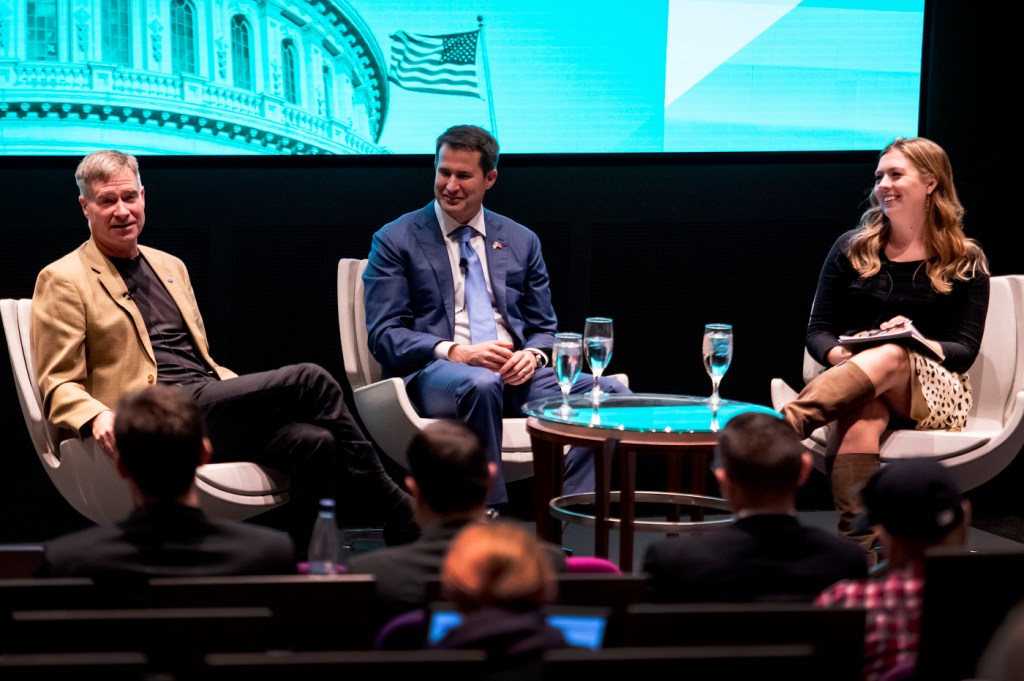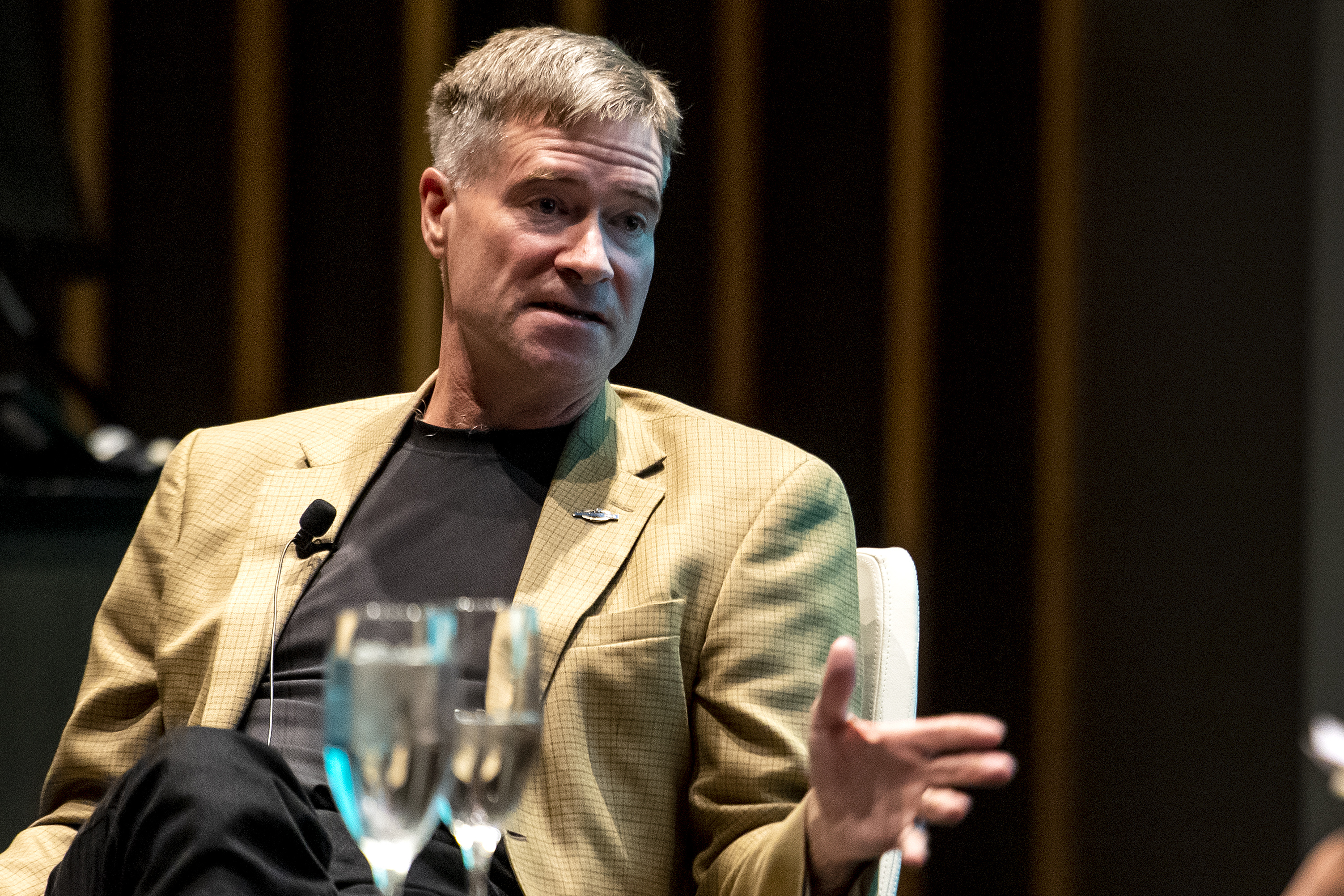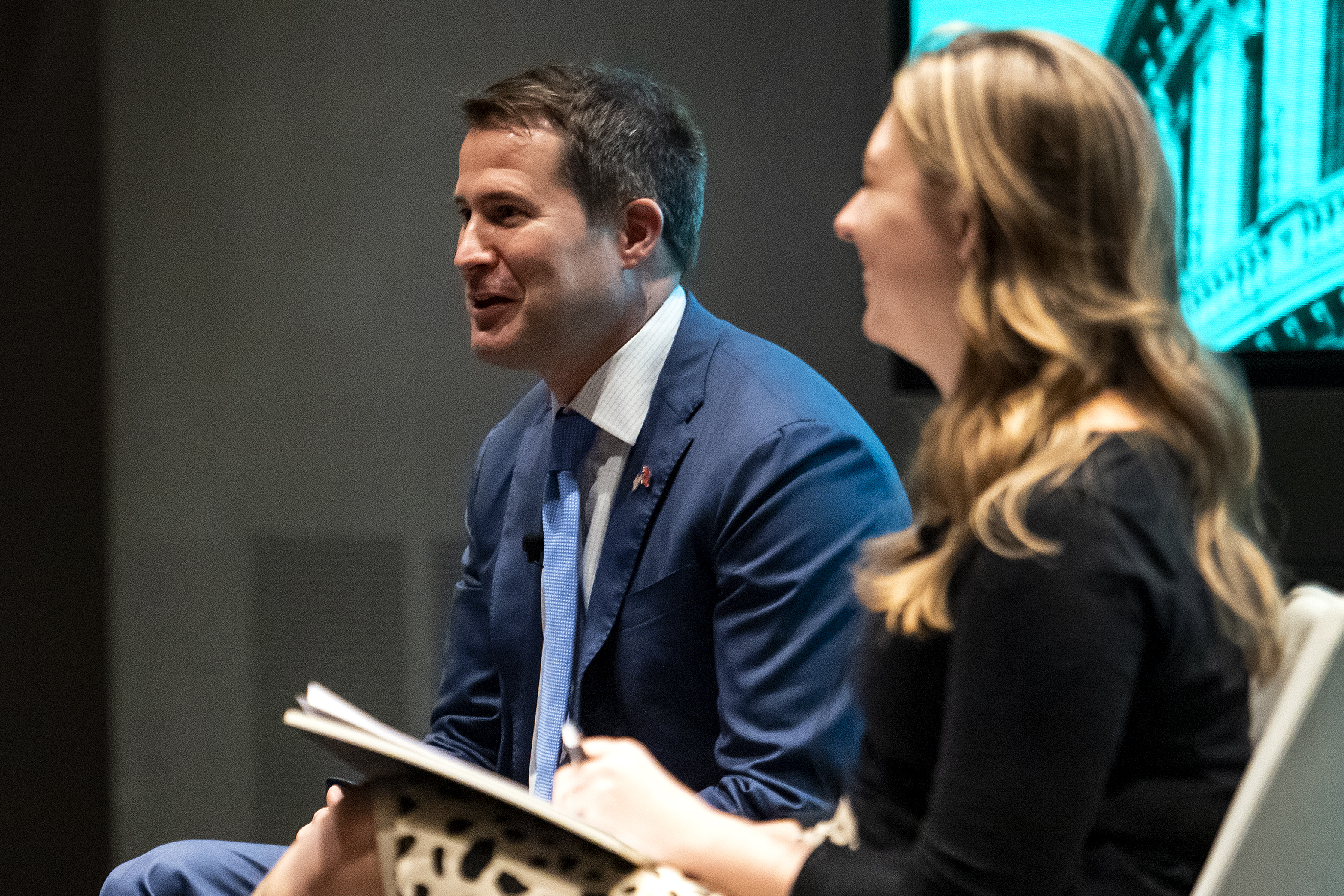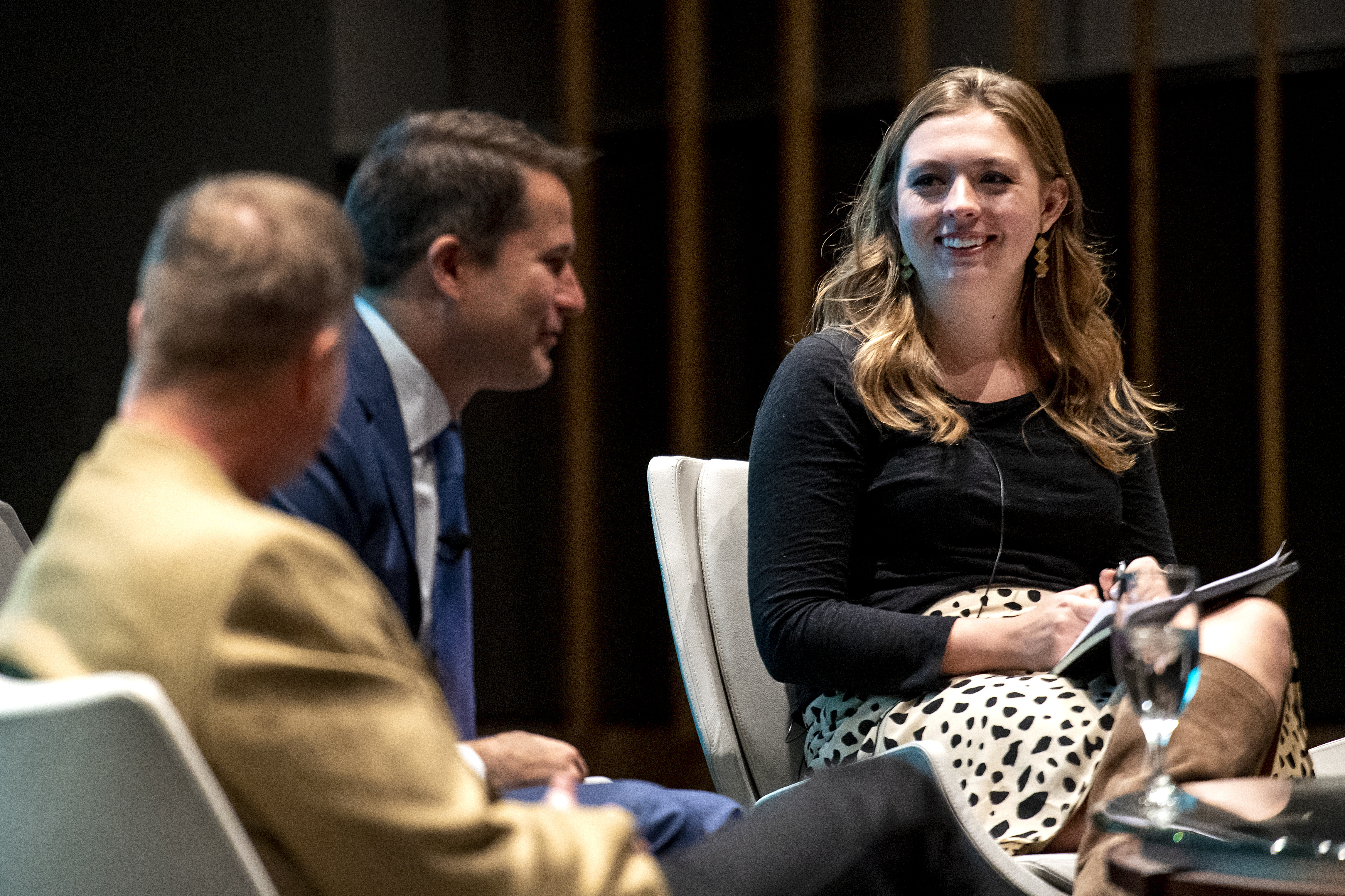Here’s how two veterans of the Iraq war say their combat experience served them in Congress

Former U.S. Representative Chris Gibson and U.S. Representative Seth Moulton sat on different sides of the aisle during their time together serving in Congress.
But something they consider more fundamental than party politics unites them: their military service in overseas combat deployments.
Gibson, a Republican, and Moulton, a Democrat, shared their stories with an audience of students, faculty and staff at Northeastern Monday night as part of a conversation about how military experience shaped their careers in Congress.
Gibson, who joined the U.S. Army in 1986 and served four combat tours in Iraq before representing New York Congressional districts from 2011 to 2017, said that one of the key qualities veterans bring to public life is service orientation.
“In the military you are taught your first priorities are co-equal, and they are the mission and the troops,” said Gibson, who is now the Stanley Kaplan Distinguished Visiting Professor of American Foreign Policy at Williams College.
Understanding these priorities comes as a product of what he called “emotional intelligence,” something of extreme importance for leaders today, he said.
“Seth and I went through some really hard times in Iraq,” Gibson said. “And what that really does is strengthen your intestinal fortitude to go forward.”


Gibson also said emotional intelligence played a key role under the demanding and difficult circumstances he and his soldiers experienced in Nineveh province, Iraq, where service personnel were trying to work through many different ideologies and ethnic groups. There were Sunni, Shia, Kurds, Turkmen, Yazidi, Zoroastrians, Christians, and Jews all in the same province, he said.
“In many cases, they were trying to work through hundreds of years of issues, but we were just trying to get the water to run or, you know, just do basic tasks,” Gibson said. “We’d seen people who had come from very diverse perspectives and somehow found a way to get things done.”
Those are attributes military veterans take with them wherever they go, Gibson said. It’s also what made him confident to run for office in 2010.
“Because what the [U.S.] people had asked of our soldiers, sailors, airmen, and Marines, was essentially to bring people together to get things done,” he said. “In our lives as legislators, at a time when it seems like we can’t come together, we know we can.”
Moulton, who served in the U.S. Marines from 2001 to 2008, agreed with Gibson’s sentiment that his service, which included four tours in Iraq, gave him the qualities that help him navigate Congress.

Moderator Stephanie Murray from Politico speaks at The Civic Experience: The Enduring Value of Military Service event in the Interdisciplinary Science and Engineering Complex. Photo by Ruby Wallau/Northeastern University
“I’m really glad I’m here to try to make a difference,” said Moulton, who was elected to represent the 6th Congressional District of Massachusetts in 2014.
Being in Congress could be frustrating and disillusioning. That’s exactly what it feels like to be part of the war in Iraq, said Moulton, who was the leader of one of the first infantry platoons to reach Baghdad in 2003.
“I didn’t agree with the Iraq war,” he said. “But I was glad I was there, because every single day I was there, I was able to make a difference in people’s lives. I knew I was having more of an impact on the Iraq war fighting it, than just back here complaining about it.”
Moulton commended Gibson as one of only two Republican members of the House to vote to keep the government open when other Republicans tried to shut it down to repeal Obamacare in 2013.
“I think what’s lacking in Congress—in Washington in general—isn’t intelligence. It’s just courage,” Moulton said. “The willingness to take a tough vote, to take a hard stance, when you know it’s the right thing to do even though it’s not going to be politically popular.”
Willingness to take such a stance is very rare in politics, Moulton said. But for those who come to politics from the military, it may be different. In Iraq, the toughest decisions, Moulton said, were the ones that forced him to summon moral courage to do the right thing, whether it was taking on a difficult or controversial mission, or speaking out against a commander.
“There is an unimaginable number of moral quandaries in a war,” he said. “Those are the toughest challenges that I faced, and that is so applicable right now in today’s world of politics.”
Moderated by Stephanie Murray, the author of POLITICO’s Massachusetts Playbook, the conversation also touched on mental health issues for military veterans.
One of the first steps Congress took to tackle flaws in the healthcare system for veterans while Gibson was in Congress was the Clay Hunt Suicide Awareness Prevention Act, which made it easier for veterans suffering of post-traumatic stress disorder to get the help they need.
“[Veterans] were in a situation where they’re really struggling, and they were denied mental health benefits because they didn’t get the right kind of discharge,” Gibson said.
Moulton, who is vice chair of the U.S. House Committee on the Budget, also spoke about how taxing war can be on veterans—and taxpayers.
“As [a U.S.] citizen taxpayer, if you say, yeah, we should go to war, you’re also going to pay for the cost of when these troops come home,” Moulton said. “That’s going to be part of the decision up front, rather than sending a whole bunch of people to war on the cheap, and then figure out how to pay for all it all.”
The program marked the fifth installment of Northeastern’s series, “The Civic Experience,” which profiles the generation of cutting-edge leaders who are shaping media, politics, and policy.
For media inquiries, please contact media@northeastern.edu.





